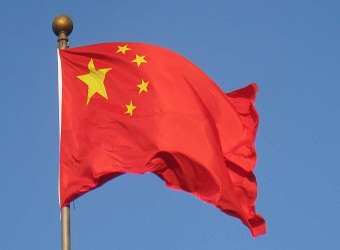China does not need the “preferential treatment” on trade anymore that would’ve been justified decades ago, U.S. Commerce Secretary Wilbur Ross told CNBC on Wednesday.
Ross said the U.S. doesn’t mind competition — but that it wants the race to be “on a fair and level playing field.”
“That means not so much in the way of trade barriers, not so much in the way of protectionist activities, not so much in the way of impediments in the way of companies operating there, not so much in the way of forced technology transfers, things of that sort,” Ross added.
The presidential administration of Donald Trump has taken aim at what it says are unfair trade practices and industrial policies by other countries that harm the U.S. economy and workers. China is one of the countries under the microscope.
The Commerce Department said earlier this month that the U.S.-China trade deficit hit an 11-month high in July.
Ross also slammed the World Trade Organization system as “archaic,” as it was designed for the post-war trade world, not the modern trade world.
The United States made a policy decision after World War II to help Asia and European countries recover from that conflict, but that policy is no longer is as relevant as it once was, he said.
“It’s very hard to say that China as now the world’s second largest economy needs the same sort of preferential treatment that it might be justified to have decades ago,” Ross said.
Identifies sources of ‘imbalance’
What the U.S. is seeking, is an “overall improvement in trade,” Ross said.
“If you look at our trade balance, there’s one geographic source of our imbalance and that’s most importantly China,” he added.
In terms of products, he pointed to automobiles as a source of imbalance, although he did not single out a country linked to that product.
“If you solve the geographic problem and if you solve the product problem, you’ve pretty well solved our trade problem,” he said.
Ross was speaking to CNBC’s “Squawk Box” from Hong Kong aftera trip to Beijing that precedes President Donald Trump’s visit to the mainland in November
US isolation a ‘fiction’ invented by the media
Despite Trump’s early abandonment of the Trans-Pacific Partnership trade deal — which would have created the world’s biggest free trade bloc — the United States is not isolating itself from the rest of the world, Ross said.
“That was never our intention to isolate ourselves. That’s a fiction that the media had invented. The idea though was we didn’t think TPP was an advantageous deal for the U.S. so we rejected the deal, not the geography,” the commerce secretary said.
The fact that Vice President Mike Pence and Ross himself have been visiting Asia since Trump’s inauguration indicates “quite visibly” that the U.S. is “not forsaking the region at all.”
“The region is hugely important to us,” he said.
Ross will visit Thailand and Laos after his trip to mainland China and Hong Kong.
Rejecting a particular trade agreement doesn’t mean rejecting an entire region, Ross said.
“Take for example, NAFTA. We’re certainly not rejecting Mexico and Canada. We’re just saying we think the commercial arrangements with them need to be reformed.”
Source: CNBC
